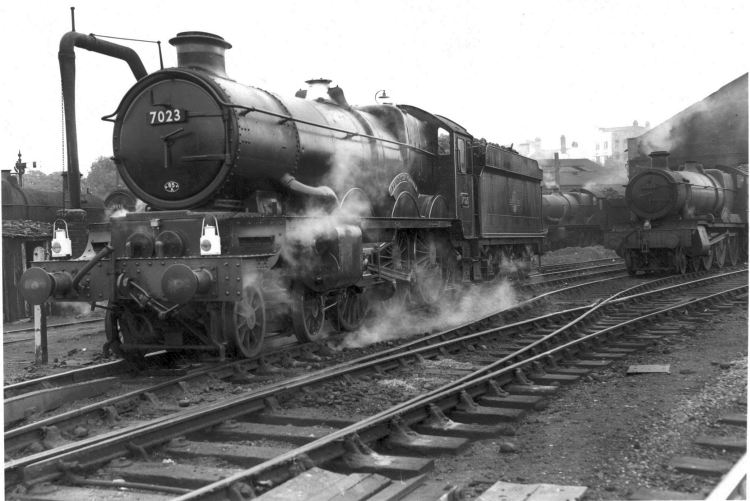Railway Nationalisation: Has Labour Proposed Something We Can Finally Agree On? - Calum SR Heaton
by The Editor

After visiting Berlin, for the second time in a year, I am constantly impressed by the history and culture of such a fine nation. Yet, along with the majestic churches and buildings of a bygone imperial empire, it is the public transport system that never fails to impress me. Most Britons have reached the phase that, all a delayed train warrants, is a very English roll of the eyes and a quiet complain to another. Going to Berlin though, and experiencing a highly efficient, on time and cheap method of travel, this expectation, was immediately broken, once I was back in England. I truly realised how terribly overpriced and inefficient the privatised rail network is.
This month, the Labour Party, after two years of the Miliband premiership, finally thought up a policy. This was to nationalise the railways. Initially, alarm bells started to ring, as personally, I am a solid believer in free market, Thatcherite style, economics. However, this idea of nationalisation acted as a wake up call to myself. Sometimes, a diehard belief in the free market is potentially a bad thing. It is important to understand, that a railway is automatically a monopoly. With areas of track held tightly in the iron fist of one train company, passengers are deprived of choice. Choice, in the free market, is, quite possibly, one the most fundamental elements. It forces companies to be competitive in order to attract customers and ultimately make the greatest turnover. The desire for wealth, in the human mind, is nurtured in this way and brings out the best and brightest in the economy. Yet, the railway monopoly has put an end to this.
National Express East Anglia, dominates the entire 'Eastern Bloc' of England, with no other competition. Therefore, its service does not need to be improved. Currently, the network has a 81% record, for on time trains, which appears to be high. Yet, nationalised networks on the continent view anything below 98%, as 'incomprehensible', to quote Rüdiger Grube, the current CEO of Deutsche Bahn. Efficiency is certainly an issue, on these unaccountable networks, yet cost is much much bigger. This is what is gratified on the walls of stations and included in the very British practice of writing very 'peeved off' letters to railway companies. The rail franchises, entirely control the ticket price of their region and are by no means restrained when it comes to cost. The Southeastern network currently controls Kent and East Sussex and is the only available route for travelling into St Pancras Station, meaning its services are imperative for commuters. Starting last year though, there has been a 12.7% rise in ticket price, which has taken the annual ticket price from £3,840 to £4,328. With the highest fares in Europe, neither of these figures are acceptable. This, is simply, down,to a lack of competition and the fact that companies have been handed too much power, which effects so many of us.
We should, sometimes remember, that not everything in this country should be designed to make a profit. Some areas, should be considered as a service. Once more, I feel Germany is a fine example. An all day travel pass in Berlin, is currently priced at €6, which includes the underground/overground, tram and bus network.
The mentality of the government ,is not blindly, thinking that the free market is the answer to all our troubles but the transport network is a service for its citizens and not a gateway for corporate greed.
As supposed Conservative governments ,mindlessly privatised the network, it was not just inefficiency and cost control that was disappearing. There is something wonderfully British about British Rail. It was this, mindless ideology, of privatisation, which cannibalised other Conservative elements. Peter Hitchens is correct, to view the traditional rail network, as a bastion of true Conservatism; civilised, social and green.
In Switzerland, over 80% of the country, say they prefer public transport to the car. The electric train is much less dependant on foreign natural resources, the cars necessity. Electric can be created from nuclear energy or renewable sources. This is, immediately, a conservative practice ,where the dependancy, on the rest of the world, is significantly reduced. When the rail networks are so inefficient and overpriced, the car is viewed, as an assets and a necessity more and more.
As the world still suffers from the economic downturn of 2008, the failure of British Rail should act as a warning to all. Centre-right governments, hoping to practice austerity and maximise profit through privatisation, should remind themselves, that monopolies are very much possible and privatisation is not always the answer. However, much of a feared prospect, that is to any believer in the free market, it is wise to take a step back and remind ourselves that a country, sometimes, demands a simple service, rather than a unaccountable corporation.